GENTLE, POSITIVE WEANINGWhile the word "weaning" often conjures up images of wailing babies and swollen, painful breasts, gentle, baby-led weaning is often so gradual and natural a process that mother may not even remember the exact day or even week that her little one weaned from the breast. Gradual weaning is gentler on both mother and baby. I use the term "positive weaning" to describe this style of weaning. Instead of abruptly removing a child from the breast, positive weaning is a mindset that respects the child's developmental readiness and views weaning as a process. Being "fully weaned" is a milestone and achievement, like mastering how to use the toilet, learning to ride a bike, or learning to read. Positive weaning also respects the mother's needs and bodily integrity, since the process of weaning may often be the child's first exposure to the idea that each person's body belongs to that person, and their first experience of respecting that others can, and will, say "no" to him or her on occasion. These important lessons have many benefits for the child long into the future. INFANT MASSAGENo matter how they are fed, newborns benefit from infant massage as they transition from womb to world. For a young child, touch is as vital to life as milk. Infants who regularly receive infant massage cry less, develop faster, and have fewer discomforts. Infant massage is a wonderful way to encourage your baby's health and well-being while bonding with your child. JOYFULLY WELCOMING A NEW SIBLINGFor many children, their special time as the "baby of the family" will come to an end when a new sibling arrives. The uncertainty of how their child will handle this transition is often a source of considerable worry for parents during pregnancy. Often in books or shows on this topic, the older sibling is portrayed as jealous and the parents or grandparents as only interested in the new baby, and in my opinion, these negative depictions plant seeds of worry and pessimism in the older sibling that may contribute to a long-term "sibling rivalry." My own experiences as a mother of seven have taught me that this transition is easier on the new big brother or sister when the older child is involved in the pregnancy; for example, attending prenatal care or ultrasound appointments; looking at ultrasound photos together; or helping to pick out clothing or prepare the home for the new baby. It is beneficial if there have been age-appropriate discussions of the birth process and birth plans; as well as frequent discussions of what they can expect of a newborn, and how Mom, Dad, and Big Sister or Brother will care for the baby...all with a positive, excited attitude. During the typical challenges of pregnancy, and especially if complications arise during the pregnancy or birth, it is best to talk with your child in an age-appropriate way about what is happening to mommy or baby and how they can help, even if in very simple ways, like, "Please bring Mommy a glass of water." When the child does these precious acts of service, praise the child, letting him or her know what a great big brother or sister he / she already is. Empathy, gentleness, education, and encouragement will go a long way toward helping the young child to embrace this new role that, God willing, will last a lifetime. SCBP RESOURCES
0 Comments
We had been hoping for and planning to try for another child -- so the news I was pregnant was welcomed by both of us -- but I share this story to let you know that holiday weaning -- and an unexpected holiday-conceived baby -- aren't just theories for me! A mere two months prior to that positive pregnancy test, when our oldest child turned two years old, I had visited my doctor to let her know that my fertility (both menstruation and ovulation) had not yet returned. Due to my prior history of infertility, she had advised that we begin to investigate possible causes. However, I had done nothing more than talk to the doctor when we conceived our dearly loved second child. Surprise! What happened? After giving birth, a breastfeeding mother has two different hormonal "sides" that can be imagined as the two sides of a scale. On one side, she has breastfeeding hormones that promote lactation (and tend to suppress ovulation) -- and on the other, reproductive hormones that promote ovulation, and which may lead to another pregnancy. While the timing of her return of fertility varies from woman to woman, and even from baby to baby by the same mother (due to many different factors) the general principle is that frequent and unrestricted suckling at the breast is the most important factor that keeps the breastfeeding hormones side of the scale "heavier," resulting in continued natural suppression of fertility. However, the further out in time from the birth, the easier it is for the reproductive hormones to tip the scales, so that menstruation or ovulation may return. This is part of the reason why the holiday season is indirectly responsible for many late summer and fall babies! What factors contribute to this unexpected holiday-related return of fertility? Here is a partial list:
If, like my husband and me, you are hoping for another baby, then just pay attention to your signs of fertility and enjoy making your holiday baby if the signs point to being fertile! However, especially if your baby is under a year old, you may want to protect your breastfeeding relationship, discourage weaning, and delay making a new baby until later in the future. In that case, you definitely want to do what you can to avoid changes in your usual nursing and sleeping routines as much as possible. This may not be the year to host holidays and celebrations! Keep your meals and preparations simple, and maybe even skip some of this year's parties. Remember, you need to maintain your normal routines as much as possible, so that baby's frequent suckling at the breast remains as consistent as possible. At the same time, be vigilant to observe and record your signs of fertility, so that if you do detect any changes that indicate fertility, you and your husband can still celebrate, but in less intimate ways. If a more detailed discussion of how to protect your breastfeeding relationship during the holidays, how to interpret your signs of fertility, or how to understand the return of fertility after birth would be helpful to you, contact me (Christelle) to book a free online, phone, or in-person consultation. As a certified breastfeeding counselor and fertility educator, I can help! For Catholic breastfeeding mothers, "Navigating the Holidays as a Breastfeeding Family," and the unexpected return of fertility are the discussion topics of our online Catholic Nursing Mothers' Group in November. Reach out if you would like to join us for this free online breastfeeding support group!
2/16/2023 'ALL SMILES': MOTHER SHARES HOW BABY SIGNS HELP HER COMMUNICATE WITH BABY (INTERVIEW)Read NowIt was such a joy to have a dear young mom and her sweet first baby, Emma, in a recent Sign, Say, and Play baby sign language series. Here are the mother's thoughts about St. Croix Birth & Parenting's Baby Signs classes! Q: What reasons did you have for wanting to learn Baby Signs (R) with your baby? A: We wanted a way to communicate with Emma before she was able to do so by speaking so we could better respond to her needs and help her to feel empowered and connected. Q: Do you think Emma enjoyed the classes themselves? If so, how could you tell? A: Yes! Watching on the iPad for 45 minutes was beyond her so young, but she definitely engaged happily each time, and she really seemed to enjoy playing pretend dressing her Teddy—all smiles and excited sounds! Q: Did you ever see Emma use Baby Signs in her daily life? If so, what signs did she use? A: She is not signing yet, but she seems to watch our hands when we do. Q: Can you think of a time it helped you or other family members to use signs with Emma? A: We use them as much as we can, especially “all done” and “more,” which I think has really helped us with feeding but also when we have to change activities or redirect her to say we are “all done”! Emma always smiles when we sign “dog”! We definitely think they will help as her capacity to comprehend the signs and then to use them grows! Q: Is there anything you would say to parents or caregivers about using baby signs with babies? A: It is fun, functional, and building strong connections between my baby and me and in her brain as she already develops her neural pathways for language before she can ever speak. Q: Would you recommend SCBP Baby Signs (R) classes? A: I already have to several moms! Thanks so much for this wonderful feedback!
Parents are often the ones who take baby sign language classes so they can communicate with their baby before baby can talk. But learning baby sign language is helpful for anyone who spends significant time with a baby, including siblings, grandparents, daycare workers, babysitters, and other caregivers! Earlier this year, Emilie, a nanny, asked her employer if she could take the Sign, Say, and Play online Baby Signs (R) Class with her nanny charge, Emma. I asked Emilie about her experience using baby sign language with Emma. SCBP: What reasons did you have for wanting to learn Baby Signs with your nanny baby? Emilie: I wanted to learn baby sign language with Emma because I knew how much it would help us communicate with each other. I have used sign language in the past in my family growing up and I was interested in trying it as a caregiver. SCBP: What age was Emma when you began to take classes with her? Emilie: Emma was seven and a half months old when we took our first class.
SCBP: Did you ever see Emma use Baby Signs in her daily life? What signs did she use? Emilie: Yes! Emma loved to use baby signs as she grew older. Her favorite signs were "Dog", "More", "All Done", "Book", and "Fish"!
SCBP: Is there anything you would say to parents or caregivers about using baby signs with babies? Emilie: Using baby signs is a great way to give your little one a way to communicate early on in life. When their vocabulary is bigger than just "cry" and "smile", it will surprise you how much easier it is to care for them! You can simply give them what they tell you that they want, most of the time. SCBP: Would you recommend SCBP Baby Signs classes? Emilie: I would definitely recommend SCBP Baby Signs Classes. They are a fun and easy way to learn a great way of communicating with your little one. SCBP: Thank you, Emilie, for taking the time to answer these questions about your baby sign language experience! Emilie: I am always happy to help out! And it was so fun to take the classes. BABY SIGN LANGUAGE RESOURCESSign, Say, & Play class series: six fun online classes for little ones 6-24 months old covering the main topics that you need to know to communicate with baby, including mealtime, bedtime, bath time, pets, getting dressed, and playtime Rumble Tumble Tummy Time class series: four fun online classes for babies 2-6 months old that use signs, song, toys, and games to make tummy time fun! Featured Freebie class: SCBP offers FREE theme-based baby sign language classes every month for children from birth to age 6! View and sign up for this month's Featured Freebie class here. Baby Signs Too: a website with a directory of certified Baby Signs (R) instructors from around the world and lots of baby signs resources for sale, too!
I had the opportunity to answer questions and answers about Bonding with Baby yesterday at the free online SuperMoms-in-Training Summit. It was a great experience! Since the actual recording is reserved for summit participants, here's a recap of what I discussed. To bond with baby (as well as older children!) I suggest new parents look into attachment parenting (AP). I would argue that AP is simply instinctive parenting that has been practiced since the beginning of the human race, but it has been promoted in recent decades by Dr. William Sears and his wife, Martha Sears, RN. In their book, Attachment Parenting,* the Searses promote the "Seven B's" of AP:
In my Summit Q & A, I discussed a little bit about each of these practices. One reason I encourage mothers to work toward a natural, unmedicated birth without routine interventions is because such a birth usually provides the best conditions for normal breastfeeding, and breastfeeding is an important factor in bonding. Another important part of Birth Bonding is skin-to-skin contact between mom and baby -- and also dad and baby! And skin-to-skin is something you can do with your baby anytime, not just at birth. Research suggests that Breastfeeding is an important factor in mother-baby bonding. It's important to add that breastfeeding doesn't guarantee bonding, and other feeding choices certainly don't prevent bonding! However, breastfeeding releases bonding hormones in baby and mother, and is known as an important factor in bonding. There was a question about what can be done to prepare for breastfeeding during pregnancy. Make sure to get a lactation consultant lined up before you have a need! If needed, it is much easier to make a call for help to someone with whom you have already established a relationship than cold calling in what might feel like a very emergent situation. A second suggestion I have is to make sure you take a good breastfeeding preparation class! The third B is Babywearing. Babies who are "worn" (carried in a sling or infant carrier) cry less and are perceived as "easier" / happier babies. This can make bonding easier. In addition to babywearing, I also recommend Infant Massage! Infant massage is a wonderful way to promote your baby's physical and emotional health while growing in your bond. I spoke the longest about the fourth B: Bed Sharing because many have concerns about bedsharing safety. It is important to follow safe bed sharing guidelines! If bedsharing isn't something that you are interested in doing, it can be beneficial to sleep close to baby, for example, with baby in a "sidecar" arrangement or with bassinette in your room. I add Baby Sign language to the fifth B: Belief in the signal value of a Baby's Cries. The parent or caregiver recognizes that babies want to communicate their needs and it is our job to observe our babies and learn what their signals mean. Baby Sign language facilitates this process by giving babies a way to communicate their needs, thoughts, and emotions before they are able to speak! A mom asked how many signs to start with. I responded to say that in my Baby Signs classes (designed for babies 6-24 months), I teach about 6 signs per week and that seems to be enough variety without overwhelm. I also recommend starting with the mealtime signs because this is such an important area where parents and babies need to communicate every day! Similar to the Bedsharing B, I recognize that "Beware of Baby Trainers" is one of the more controversial AP practices. To make this less confrontational, I like to explain this one as avoiding those practices that force you to be less responsive to your baby. For example, there are some methods that are designed to "train" a baby not to cry...ever. This is the kind of practice that should be avoided if you want to practice AP, because it interferes with the previous B: recognizing the signal value of a baby's cries. (This B does not mean using gentle methods of weaning or helping your toddler learn to sleep through the night at an appropriate age. Of course all children should wean from the breast and sleep through the night!) The final B, which in my opinion is the most important, is Balance and Boundaries. Parents who gravitate to AP tend to be (like me haha) Type A perfectionists. It is important to be gentle with yourself and make sure your own needs are met: physical, emotional, social, and spiritual. AP can be intense and it is something that requires a lot of energy and commitment for the long-haul. You absolutely need to meet your own needs to be a long-term AP parent. You matter! And your baby does, too! Blessings to you and your baby.
RESOURCES
8/12/2021 supporting new MOTHERs during a loCkdown: a guide for friends and extended familyRead NowThe coronavirus pandemic has changed life as most of us once experienced it. Many areas of the world are in lockdown, and even in areas where things have opened up, as the number of COVID-19 cases spikes again, we will likely face more social distancing measures or quarantines to try to slow the spread (if we aren't already). For some new mothers, this slower, more home-based pace of life has been a good thing. These moms report that being quarantined with their babies has helped them breastfeed, since - just to mention one thing - being separated from a nursing baby tends to make maintaining a milk supply more challenging and if nothing else, lockdown gives us lots and lots of time with our immediate family members. But in other and important ways, social isolation is not great for new mothers. Many important services that mothers need, including lactation help, have been more difficult or impossible to access during lockdown. Aside from access to healthcare, all mothers need other mothers, friends, sisters, cousins, grandmothers, aunts...we need our sisters and our sage femmes to let us know we're not alone; we're loved; we're doing a good-enough job; our kids are normal (usually); and, if they're not, to have faith that eventually, this too shall pass. Lockdowns put a lock on these face-to-face and side-by-side moments...natural social interactions which normally serve to lower our stress levels and restore us - "enhope" us. And all this goes quadruple for new mothers. Dealing with lochia, sore nipples, night feeds, blow outs, the constant guessing games that a newborn brings (a/k/a no instruction manual), keeping a brand new non-verbal human thriving and growing, and caring for everything "down there" is just a lot. In some idealized past, we imagine our ancestral mothers got to lie around while their loving, supportive kin waited on them hand and foot. Sure, maybe that happened sometime, somewhere, but envying our long-departed great-great-grandmother's "lying in" is not really going to help you get through this painful feed, on this lonely day, at this ungodly hour. So let's break this down. New mothers have physical needs. Food, water, monster sized maternity pads (in the beginning), menstrual pads later on, baths or showers, and (eventually) clean clothes. If you love her, ask about these things. If she needs something, help or ask someone else to help. Leave things on her porch, in her mailbox, send it unaccompanied up the elevator, or throw it through her window if you have to! (Or you could just give to the baby's dad, but that's not as fun.) If she's good with her physical needs, I guarantee she has emotional needs. Call and ask about her birth. Listen. Bite your tongue if you find yourself starting any sentence with the words "at least." Listen. Celebrate the good stuff with her. Mourn with her anything she found sad. Share her anger if anything made her mad. Don't tell her what she should have done differently. Listen. Are you listening? Keep listening. No matter what, make sure to let her know how amazing she is. No one in the history of the world had her birth. It was her adventure and she is a heroine for having done it! Call another time and ask how things are going with the baby. Celebrate the joys. Mourn the things that aren't going so well with her. Did I mention don't tell her she should have done anything differently? She is probably already beating herself up about something. If her baby is growing and developing, she's doing a great job. Tell her. If her baby is struggling, offer to help. If she's got other kids, depending on your local situation, you might be able to have someone in mom's social bubble bring the baby's older siblings somewhere outside for a socially distanced / masked playdate so she can visit (whether in-person or virtual) with the doctor, or the chiropractor, or the lactation consultant, or whoever it is she thinks can help. Moms grow in confidence and feel capable when the people around them support their decisions about their baby's care. Be that person (even if you secretly disagree). Being a great friend / sister / mother / mother-in-law, etc., means supporting the new mom's efforts to become a mother, a big part of which is taking responsibility for her baby. And chances are very good that if the baby continues to struggle, even after that visit with [insert name here] she will try something else, and something else, and something else, and maybe, when she's tried everything else, she may even ask you for your advice! Now is your moment. A few days or a week later, call her again. And then again. And yet again. And pretty soon she will blossom and her tiny baby will become a chunky monkey, roll over and crawl and take his first steps, and life will settle and she will never forget that you were there, on the sidelines, cheering her on the whole time. Maybe you never carried a meal to her bedside on a solid-gold tray, but you were there. And maybe she'll tell her great-great-granddaughters about you and how you were there for her when great-grandpa was born, during the time of the world coronavirus pandemic. ways st. croix birth & Parenting can help
Quick Baby Rubdown! 3 minute massage for baby. Easy to fit in after a bath or to relax baby before bedtime. Infant Massage has many benefits for your baby, including better mental health into adulthood! This video is a mini version of the full body infant massage in our Infant Massage Basics class! Check our schedule for our next online class. Contact us to register! This video is intended for educational purposes only. Please consult your baby's doctor or medical care provider for specific advice about the care of your baby. It is not recommended that you use any oil on babies under 6 weeks of age. Consult with a certified aromatherapist or your baby's doctor concerning the use of essential oils on babies younger than three months old.
c. Christelle Hagen 2021 ~~~~~~~~~~~~~~~ Music Credits: Birthday Musician: LiQWID URL: http://soundcloud.com/liqwid Did you know holding your baby tummy to tummy and skin to skin counts as tummy time? In Bosom Buddies: Tummy to Tummy, Skin to Skin (BONUS Tummy Time Activity Video) you will learn:
This video is intended for educational purposes only. Please consult your baby's doctor or medical care provider for specific advice about the care of your baby. Music Credits:
Call Me Musician: LiQWID URL: http://soundcloud.com/LiQWID Birthday Musician: LiQWID URL: http://soundcloud.com/liqwid Someday Musician: Alexander Delarge URL: https://icons8.com/music Words Musician: Jason Shaw URL: https://audionautix.com License: https://creativecommons.org/licenses/... Ice cream Musician: Ilya Truhanov URL: https://icons8.com/music Help your baby's tummy time take off with the Airplane Game! No equipment needed. In Up, Up, and Away! (Tummy Time Activity Video #4) you will learn:
This video is intended for educational purposes only. Please consult with your baby's doctor or medical care provider for specific advice about the care of your baby. Music Credits
Folk Bed Musician: Jason Shaw URL: https://audionautix.com License: https://creativecommons.org/licenses/by/4.0/legalcode Lazy Day Musician: Jason Shaw URL: https://audionautix.com Ice Cream Musician: Ilya Truhanov URL: https://icons8.com/music Don't Stop Now Musician: ASHUTOSH URL: https://soundcloud.com/grandakt Rock your baby's tummy time by using a large ball! Rock 'n' Roll Your Baby (Tummy Time Activity Video #3) explains how to:
This video is intended for educational purposes only. Please consult your baby's doctor or medical care provider for specific advice about the care of your baby. Always follow any baby carrier's instructions for safe babywearing and ensure baby's airway is straight so they can breathe freely. Music Credits
Chill Musician: LIQWID URL: http://soundcloud.com/liqwid Ice Cream Musician: Ilya Truhanov URL: https://icons8.co/music Lazy Day Musician: Jason Shaw URL: https://audionautix.com/ Sweet Musician: LIQWID URL: http://soundcloud.com/liqwid |
Details
Archives
November 2023
Categories
All
Enter Your Email Address to get St. Croix Birth Blog Posts in Your Inbox(We don't collect your email address and you won't get anything else from us.)
|
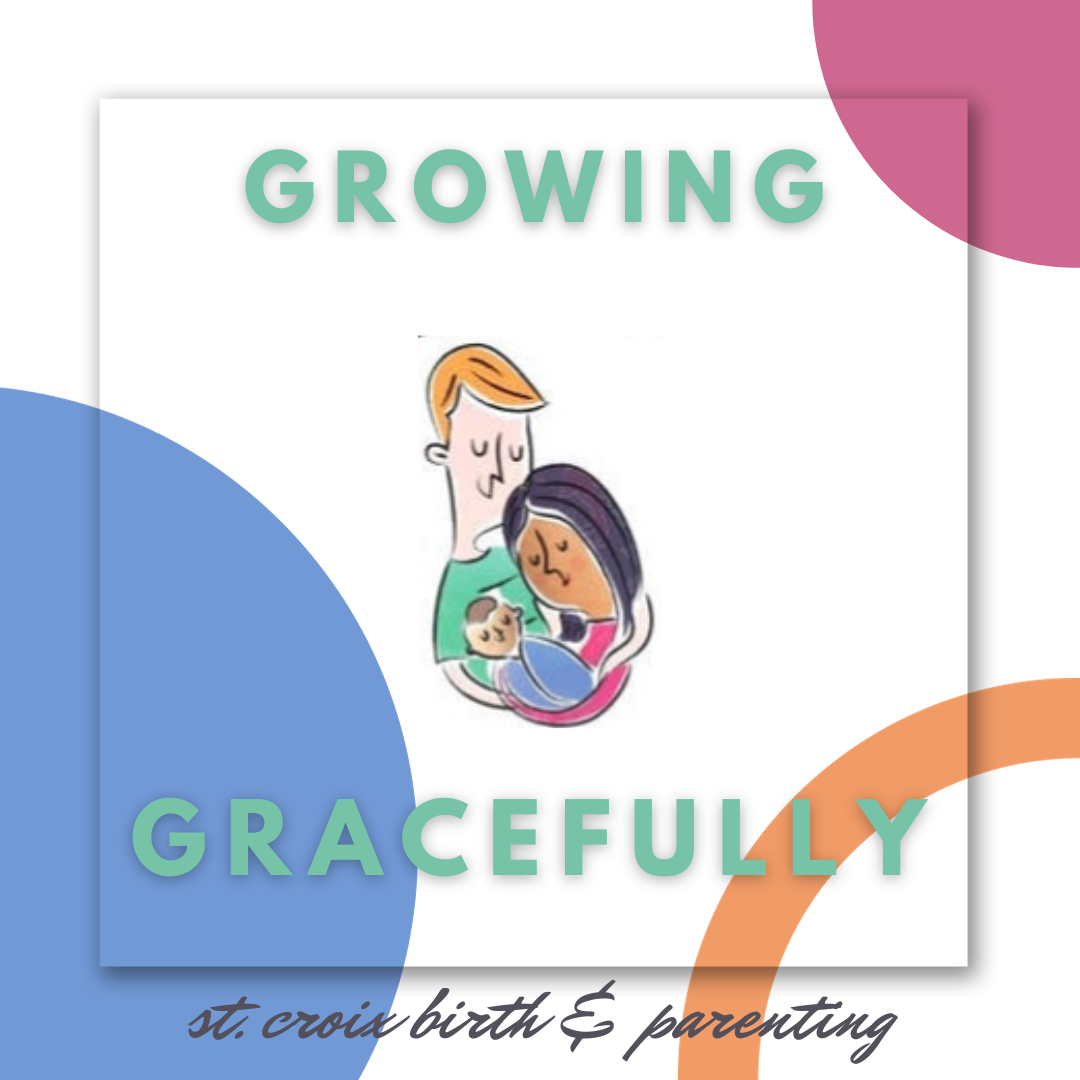
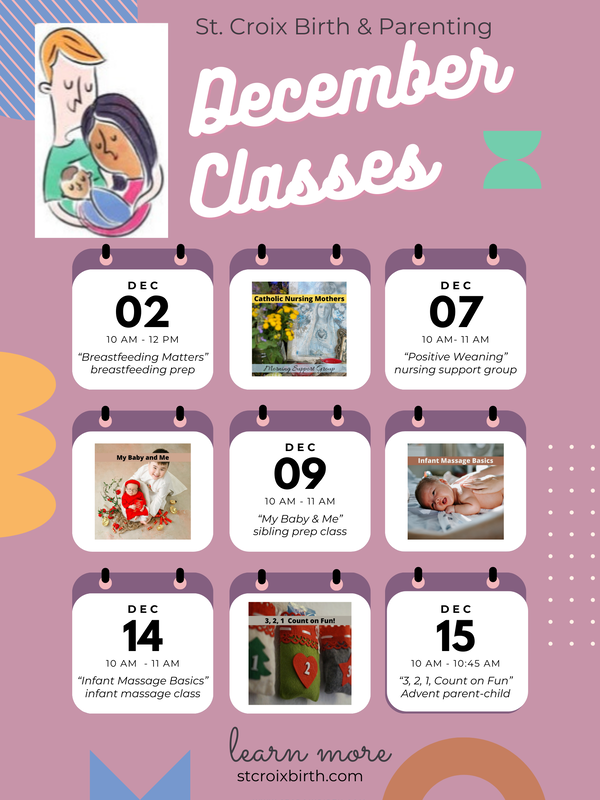
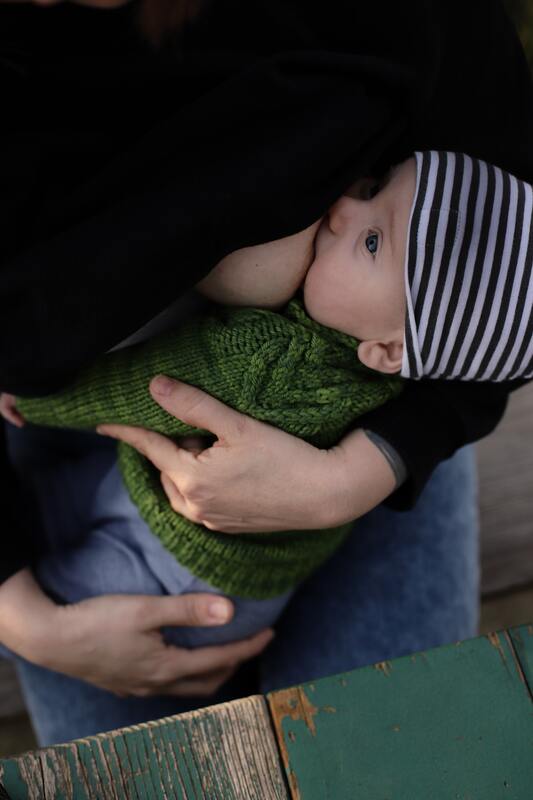
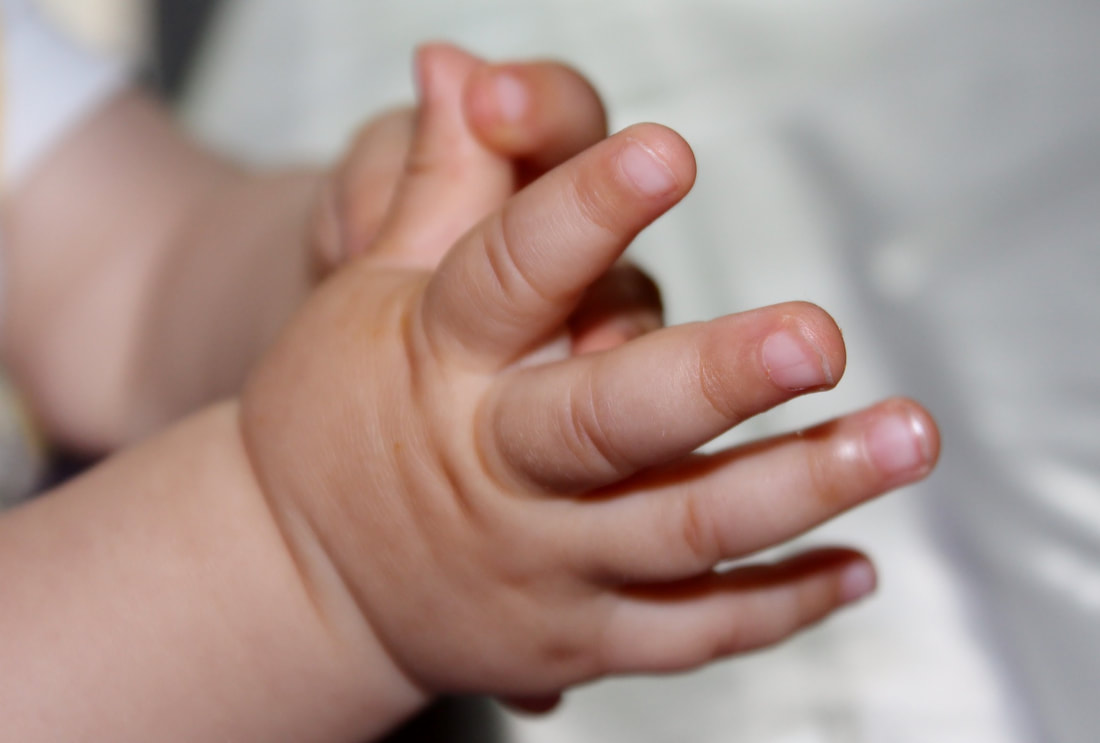
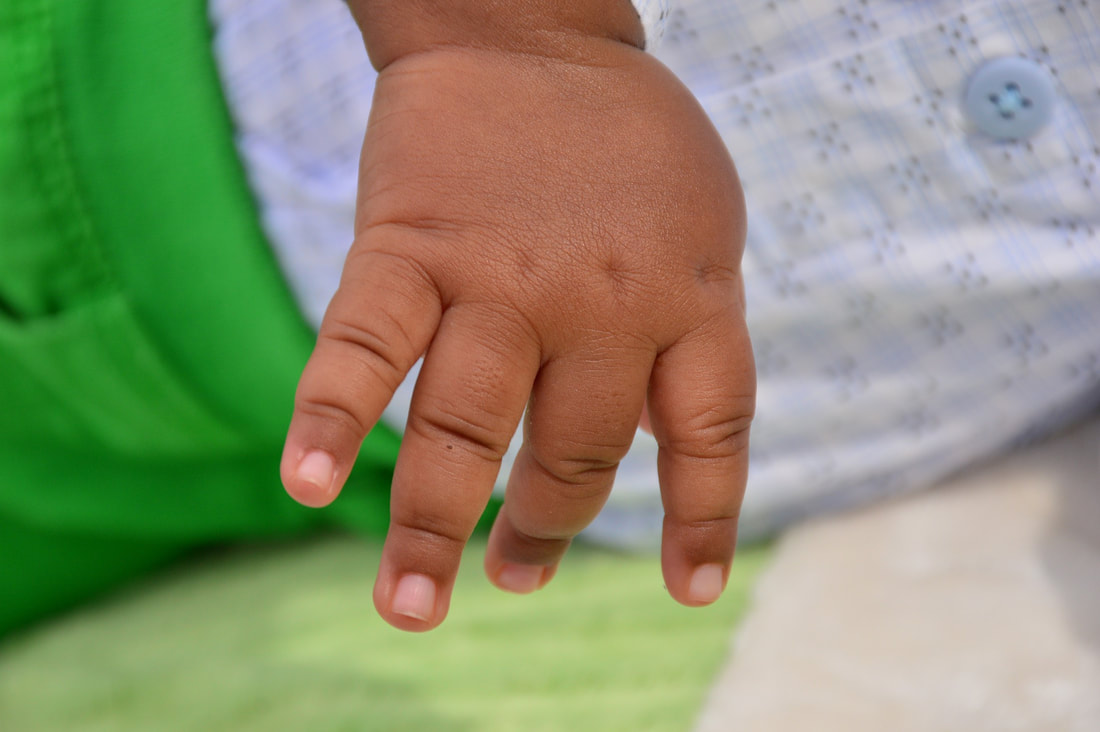
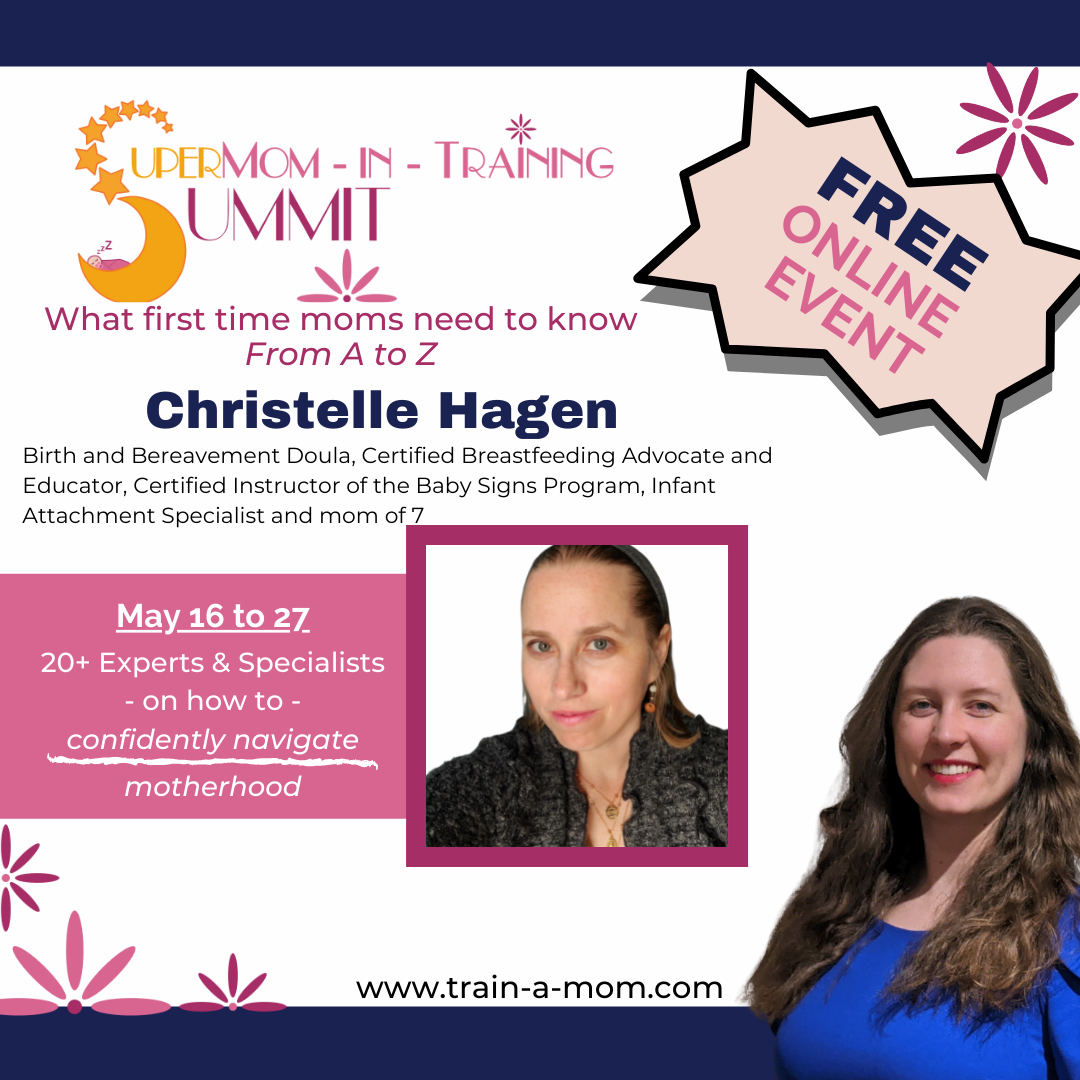


 RSS Feed
RSS Feed